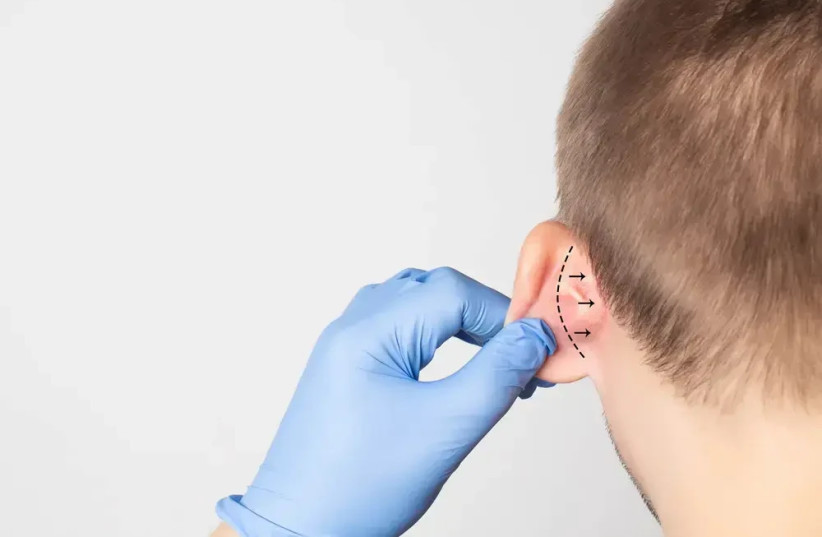Prominent ears affect the symmetry of facial appearance and are a source of insecurity and teasing. This is also the reason why ear surgery, known as otoplasty, has become very popular for children. Typically, the surgical procedure is performed around the age of six, when the child enters first grade.
By that time, the ear has finished growing, and the child can face teasing and bullying from their peers regarding how their ears looked.
In recent years, we have witnessed an interesting phenomenon that has attracted a new audience to this ancient surgery – young adults between the ages of 20 and 30 who have decided to fix the appearance of their ears through surgery.
Unlike other cosmetic surgeries, otoplasty is primarily common among children, and most procedures are completed before entering first grade due to teasing and insecurity regarding their ears' appearance, or due to a lack of proportion that requires medical intervention.
However, recently, even adults who may have undergone similar surgeries in their childhood are turning to this procedure, but for different reasons. The surgery is considered relatively simple, lasting about two hours and is performed on children under general anesthesia. It takes several months for the final result of the surgery to become apparent, so summer vacation is a good chance to undergo the surgery, with most of the swelling subsiding within a week or two.

Once the surgery is done, it's time to begin the healing process, which can be somewhat challenging for both children and parents. First, they need to wear a sweatband for a week at all hours of the day, and then for an additional three weeks during the night. The stitches from the surgery go away on their own and after two days, they can start washing their head again. However, it will take several weeks and all the surgical wounds completely healing for the child to go to the beach or pool or play spots.
Why are more people getting cosmetic ear surgery?
The number of cosmetic ear surgeries in Israel has almost doubled in recent years: Around 700 surgeries were performed in 2020 compared to only 400 just two years earlier. In the United States, the capital of aesthetic surgeries, there has been a higher increase, from 23,000 surgeries in 2018 to 53,000 surgeries within two years.
The reasons for the increase in demand for the surgery are diverse, but from the referrals of older patients, we can gather that there are two main factors:
- Social media: A decade ago, Instagram entered our lives and created a change in the world of photography and visual culture as we perceive it. Today, with platforms like TikTok and others joining in, it's difficult to escape from the abundance of photos and posts. Even those who are not active on social media may still get tagged by friends and family. Prominent ears also have a dramatic effect on one's facial appearance, which is what motivates some people to seek a long-term cosmetic solution.
- Zoom meetings: Similar to what happens on social media, Zoom meetings have also led us to look at ourselves in a slightly different light. Suddenly, our faces have become our unique identity cards that represent us to the outside world. Unlike social media, it is difficult to cover the entire face with a filter in virtual meetings, providing yet another reason to fix prominent ears.
The goal of cosmetic ear surgery is to attach the auricles to the skull and, if necessary, create a fold that mimics the anatomically correct shape of the auricles. The surgery allows for the correction of various distortions in the ears, attaching them to the skull, correcting asymmetry, and creating an inner fold for people (mostly children) who were not born them.
There are various methods that can help the surgeon shape the ears and adapt them to the facial structure. The surgeon should have a precise understanding of the anatomy of the ear and preferably have extensive experience in the field. Choosing the desired surgical method, in combination with experience and a responsible medical team, can result in the best outcome and provide peace of mind in cases where continued treatment is required. A general rule in plastic surgeries is to avoid unnecessary risks.
Dr. Michael Moshe is a leading specialist in plastic and cosmetic surgery in a network of general cosmetic clinics.
